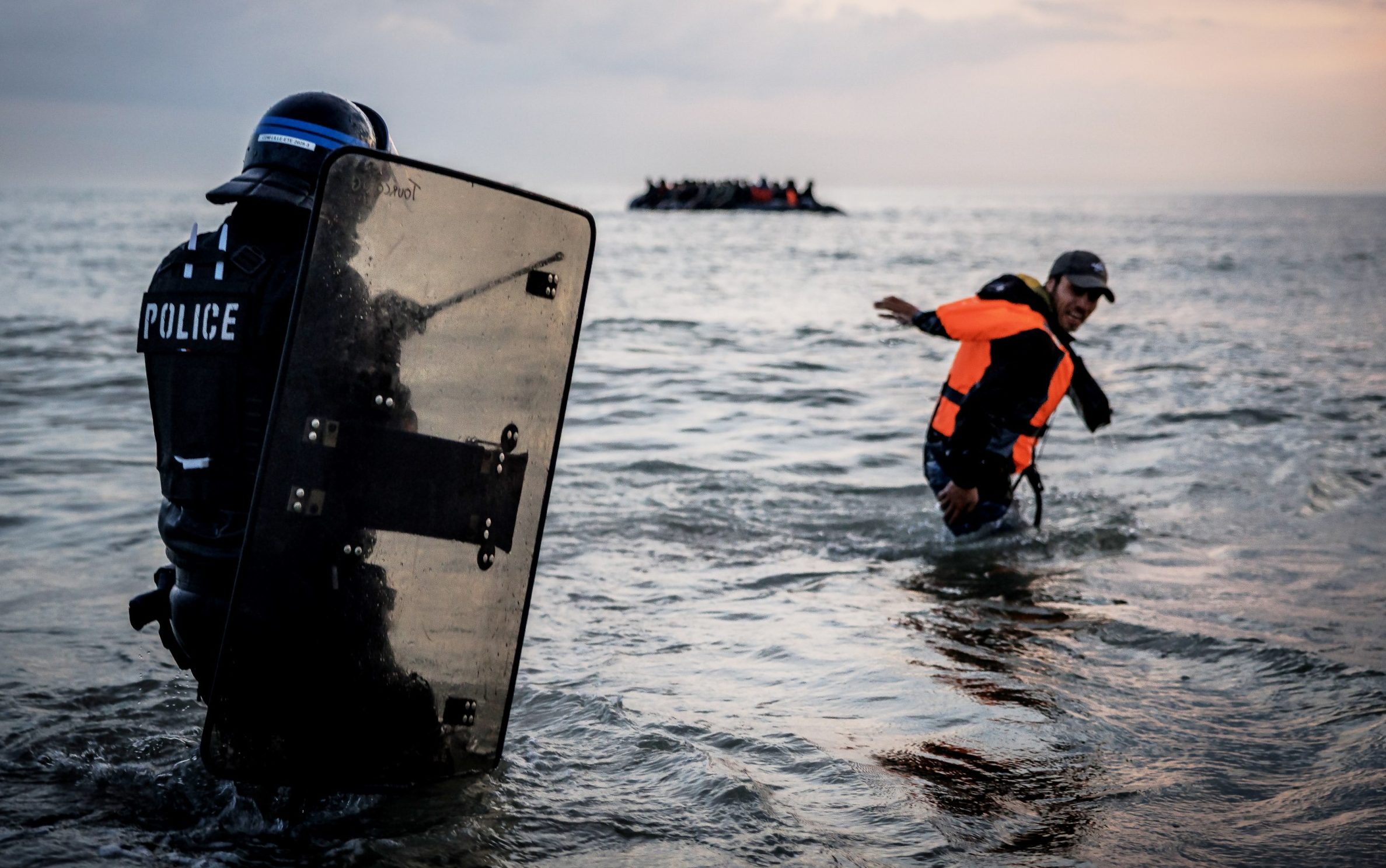French Police Slash Inflatable Boats to Discourage Dangerous Channel Crossings Amid Rising Migration

French Police Take New Measures: Inflatable Migrant Boats Slashed to Curb Channel Crossings
The English Channel has long been a focal point for intense international attention, serving as both a geographical barrier and a symbol of complex cross-border migration challenges. Recent developments highlight a significant shift in law enforcement tactics. For the first time, French police have begun methodically slashing inflatable boats with knives—a move designed to prevent migrants from using these vessels to make the perilous journey across the Channel and reach the United Kingdom. This unprecedented approach, reported by The Times, marks a pivotal moment in the ongoing struggle to manage the dynamic and evolving landscape of irregular migration at Europe’s borders.
Historically, the stretch of water separating northern France from southern England has posed not only natural hazards for migrants but also persistent operational challenges for authorities on both sides. Inflatable boats, often used due to their affordability, portability, and easy concealment, have become the vehicle of choice for many attempting this crossing. Their sudden deflation at the hands of law enforcement represents a novel intervention in the escalating efforts to address the surge in Channel crossings.
The roots of this new policy trace back to increasing pressure on French authorities to demonstrate tangible results in deterring irregular migration. In the first half of the year alone, over 20,000 individuals are reported to have attempted the journey by boat—a 51% increase compared to figures from the previous year. This dramatic rise has prompted urgent legislative and operational responses aimed at disrupting the logistics of organized cross-Channel movement. The deployment of knives to disable these boats is part of a broader legal framework and operational strategy focused on removing the means of unauthorized passage without direct confrontation or escalation.
Key terminology arises in this context. The term “inflatable boats,” or dinghies, refers specifically to vessels constructed of flexible materials capable of being deflated, transported, and rapidly re-inflated. Law enforcement agencies encounter unique obstacles in policing these boats: they can be assembled and launched from remote or poorly monitored coastal areas, bypassing traditional checkpoints and detection systems. Slashing the boat as a physical deterrent seeks to render these vessels unusable before they ever reach the water, thereby pre-empting launches rather than responding to them in dangerous maritime situations.
Implementation of this method has unfolded in step with coordinated patrols along key points of the northern French coastline. Officers, equipped with specific directives and tools, conduct targeted inspections of storage sites, beaches, and other locations suspected of being used to prepare crossings. The immediate deflation of boats eliminates the prospect of a last-minute escape attempt, reducing the risk for both migrants and authorities of potentially life-threatening scenarios at sea. The operational emphasis remains on neutralizing the equipment rather than engaging directly with the individuals, aiming to minimize confrontation and associated risks.
Reactions to this tactic have been swift, particularly across the Channel. Officials in the United Kingdom have expressed support for the visible enforcement step, noting its alignment with broader bilateral efforts to reduce the volume of irregular arrivals. The move also garners significance within the context of Anglo-French cooperation on border security, with both countries sharing responsibility for managing migration flows and ensuring the safety of vulnerable individuals. New legal provisions have enabled French police to carry out such seizures and destruction actions, signaling a readiness to employ more proactive and preventative solutions in the face of evolving smuggling tactics.
This operational milestone arrives against the backdrop of ongoing efforts to analyze migration routes, disrupt criminal networks, and safeguard lives. Inflatable boat crossings over the English Channel continue to dominate public debate, drawing scrutiny from policymakers, humanitarian organizations, and the general public. The French police’s decision to use knives as a tool underscores both the urgency and complexity of migration management in the region. By focusing on disabling the means of transportation before they can be used, authorities hope to address the root logistical enabler of many unauthorized journeys.
While the long-term impact of slashing inflatable boats remains to be fully assessed, this measure is set to influence patterns of attempted crossings and may prompt further adaptations from both smugglers and law enforcement. It also brings renewed attention to the challenges faced by all parties engaged in Channel migration—balancing security, humanitarian considerations, and the practical realities of border enforcement. As the situation continues to unfold, this method of intervention stands out as a new chapter in the multi-layered approach to Channel border control.
Ultimately, the introduction of this new method by the French police highlights the constantly shifting nature of cross-border migration management and the determination of authorities to adapt to emerging trends. As inflatable boats are slashed and rendered unusable, the message is clear: operational innovation remains central to the ongoing efforts to secure the Channel and ensure safe, regulated passage. Ongoing observation and analysis will be critical in understanding the broader effects of these measures and in shaping future responses to migration across one of Europe’s most closely watched maritime corridors.
